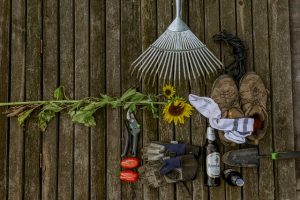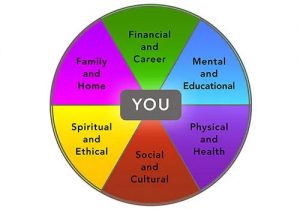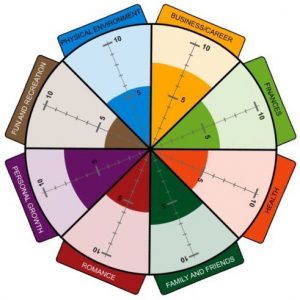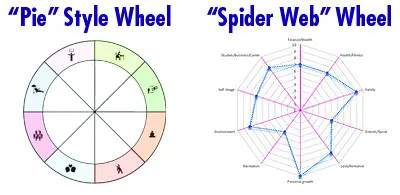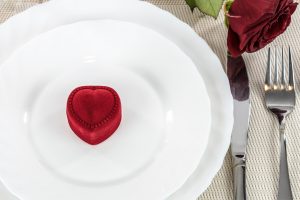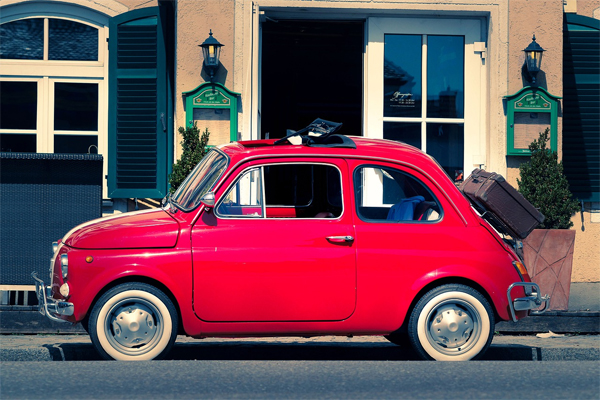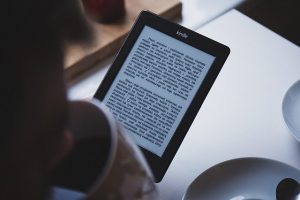 Do you read on an e-reader? Do you buy electronic books? Do you buy paper books from stores that may or may not collate your purchases and share them with Amazon and the likes, anyway? Do you use apps like Goodreads to get recommendations, store read and want to read type lists, and to share read books with connections?
Do you read on an e-reader? Do you buy electronic books? Do you buy paper books from stores that may or may not collate your purchases and share them with Amazon and the likes, anyway? Do you use apps like Goodreads to get recommendations, store read and want to read type lists, and to share read books with connections?
Last year, I watched “Online privacy is broken; this is how we fix it” a TEDX GEM talk by Emerald De Leeuw.
I also retweeted a tweet about an (older) mom who had been on Snapchat for a month where she captured her husband, a public school librarian, ranting in the most decent way possible. Two of the snaps stood out for me: one with him refusing to stock a biography of President Trump* and the other about Barbar the elephant being racist, colonialist rubbish. Whilst I absolutely applaud his principled stand, does he as a librarian have the right to censor information that could be put in a section labelled something like: things you should not do and people you should not emulate?
 In the recent past, I may or may not have done work that may or may not have involved none or several public libraries. Whilst data protection and privacy were not the focus of that particular piece of work, the subject matter was a subset. Discussion centred around the usefulness of maintaining user reading history versus the expectation of privacy. Librarians like to have access to the list to recommend, when asked, however, the potential to profile (via the electronic management system) the individual using their reading list exists. Librarians generally voted in favour of not retaining the user history and rather discussing with the user asking for recommendations at the time. With the ability to shape the thoughts of a community, librarians are far more powerful than I think they realise.**
In the recent past, I may or may not have done work that may or may not have involved none or several public libraries. Whilst data protection and privacy were not the focus of that particular piece of work, the subject matter was a subset. Discussion centred around the usefulness of maintaining user reading history versus the expectation of privacy. Librarians like to have access to the list to recommend, when asked, however, the potential to profile (via the electronic management system) the individual using their reading list exists. Librarians generally voted in favour of not retaining the user history and rather discussing with the user asking for recommendations at the time. With the ability to shape the thoughts of a community, librarians are far more powerful than I think they realise.**
Articles have been popping up on my timeline recently about privacy, data protection and Amazon knowing more about you than anybody else. A certain BBC documentary aired the other evening citing the number of data points collected per person per ONE click on the website. Add to this the tracking of reading material via the Kindle ecosystem.*** At this point, Amazon could probably make you the movie of your future life and be 99% accurate.
This is not a piece on digital versus paper as I’ll point you back to the third question above and the TEDx talk. Whilst to some extent, our identity can be influenced and moulded according to the mores of the community within which we live, our identity is no longer influenced but rather curated. Also, curated at the speed of light to suit the motives of the highest bidder. What is the antidote to this? I like to think mindfulness. Do we need an antidote? What do you think?
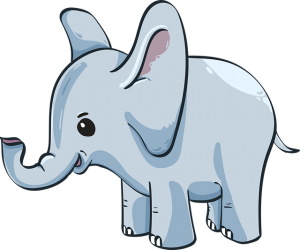
*Respect the office, etc.
**Disclaimer: this is most definitely not a Tomcats reference.
***And social media posts, etc etc.
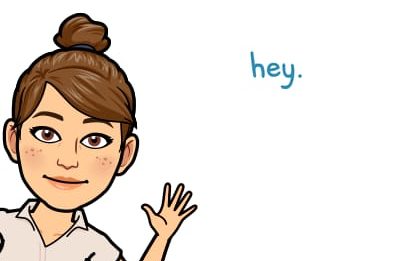

 Yes, those phone calls would be awkward at first: “Well, I guess it is strange how we’re all sick again this Friday boss, but (pinches nose, coughs) I rilly habe a bery bad cold.” Yes, there would be fury at first. Yes, some of us, many of us, might be fired. But we would be fired for the greater good. You can’t make an omelette without a few pioneers getting arrows in their backs.
Yes, those phone calls would be awkward at first: “Well, I guess it is strange how we’re all sick again this Friday boss, but (pinches nose, coughs) I rilly habe a bery bad cold.” Yes, there would be fury at first. Yes, some of us, many of us, might be fired. But we would be fired for the greater good. You can’t make an omelette without a few pioneers getting arrows in their backs.
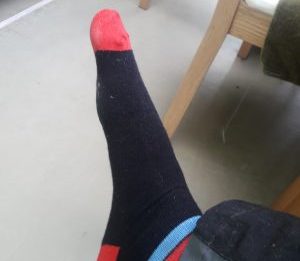
 The Watchers
The Watchers
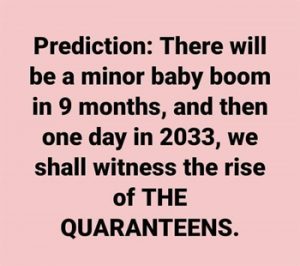
 Back to the awkwardness. For a while, it just looked like the Covid Stone. Then it started looking like a real baby. I was stuck at home, as we all were. Going literally nowhere except to hospital appointments by myself. Time went on and it was just too late to say anything on all the work video calls. I mean, what do you do? Stand up and show off your belly in an ‘accidental’ side shot? Yawn and stretch? Or do you interrupt proceedings with an “excuse me I have some news?” While debating these various different and equally awkward scenarios, so much time passed that it was nearly time to have the actual baby. And then he arrived early. So then the message had to very quickly turn into “hey, I’m off here now for a bit of personal time, but not for too long. No, I don’t have Covid. BRB”-type messages. AFK for a few days.
Back to the awkwardness. For a while, it just looked like the Covid Stone. Then it started looking like a real baby. I was stuck at home, as we all were. Going literally nowhere except to hospital appointments by myself. Time went on and it was just too late to say anything on all the work video calls. I mean, what do you do? Stand up and show off your belly in an ‘accidental’ side shot? Yawn and stretch? Or do you interrupt proceedings with an “excuse me I have some news?” While debating these various different and equally awkward scenarios, so much time passed that it was nearly time to have the actual baby. And then he arrived early. So then the message had to very quickly turn into “hey, I’m off here now for a bit of personal time, but not for too long. No, I don’t have Covid. BRB”-type messages. AFK for a few days.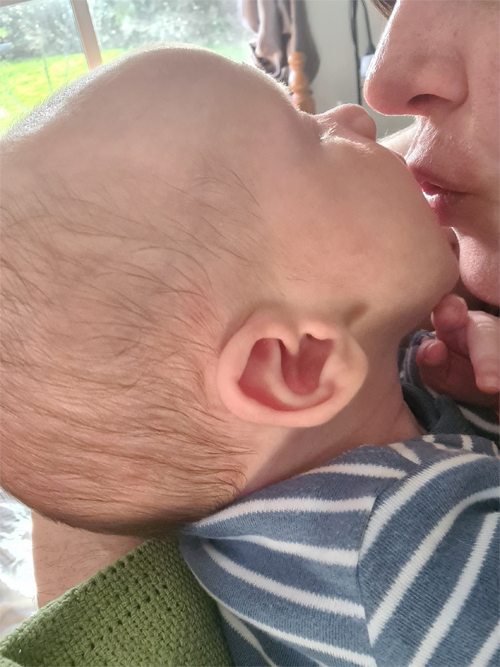
 Then a series of bags and containers that have to be assembled very carefully in a specific order, Russian doll-like, when you do the actual test. Weird, I thought I’d already started, and then I notice in the book of instructions – that was in the bag – that I shouldn’t open the bag without washing my hands for 20 seconds, and that I should also clean all the surfaces before I get them out, but I haven’t finished the box; but then I shouldn’t have started, because I’ve got to clean everything first. How the fuck am I meant to know that, as, to read it, I’ve had to open the bag? So now I clean everything because it’s wrong. Could have Covid on it. So I go back and I wipe everything and I think I’d better finish the box, or maybe not? Maybe I should unfold and start all over again, in case I’ve missed something in the instructions? When I do read the instructions, I say “thank goodness I didn’t just see the big cotton bug and stick it up my nose and throat,” and then it tells me to do that anyway, but it must be an hour before the collection at our priority letter box, and we mustn’t touch anything with the cotton bud apart from two and half centimeters up my nose and the back of my throat. By this time I’m feeling so much better: I mean I’ve made the box, laid everything out and I’ve cleaned everything three time,s and I’ve learnt a lot about my area and where our priority post boxes aren’t, probably super spreading all the while. So then I find the link to the you tube video – which is handily in the booklet – so much easier to click on a link in paper instruction booklet – or rather it isn’t – but I manage to type it and link to Ali, the nice man who explains everything handily and simpl,y including which things might not be in the kit they’ve sent me. He says he know it’s a bit fiddly and frustrating but not too much he hopes, as I guess I could be feverish and confused at this point. He then reminds me to wash my hands for twenty seconds exactly. I nearly scald myself with the tap, but guess that’ll kill Covid as well. He also shows me how to stick a cotton bud in my throat and up my nose without touching anything else with the fabric. This all needs to go into the tube with liquid, and I must snap off the handle and close the tube without contaminating the contents. At this point I have a headache and have discovered how to stimulate a gagging reflex from the back of my throat without touching anything else. But have I rubbed my tonsils, and who knew they weren’t the dangly bits, for fecks sake? Also, this is where it goes into a second tube- that I don’t have – and into two bags: one labelled bio hazard and the other with a pinch seal. All in a specific order, which is then all packaged in my handcrafted origami box, which has a special seal sticker that is in the bag in the box. Bollocks; still, it’s all part of a test, so I backtrack and seal the box thankfully with all the contents. I’m now running late for the priority collection, so in my feverish and somewhat confused state I, masked to the eyeball, stagger to the priority post box, narrowly evading non-socially-distancing pedestrians who ring the post box.
Then a series of bags and containers that have to be assembled very carefully in a specific order, Russian doll-like, when you do the actual test. Weird, I thought I’d already started, and then I notice in the book of instructions – that was in the bag – that I shouldn’t open the bag without washing my hands for 20 seconds, and that I should also clean all the surfaces before I get them out, but I haven’t finished the box; but then I shouldn’t have started, because I’ve got to clean everything first. How the fuck am I meant to know that, as, to read it, I’ve had to open the bag? So now I clean everything because it’s wrong. Could have Covid on it. So I go back and I wipe everything and I think I’d better finish the box, or maybe not? Maybe I should unfold and start all over again, in case I’ve missed something in the instructions? When I do read the instructions, I say “thank goodness I didn’t just see the big cotton bug and stick it up my nose and throat,” and then it tells me to do that anyway, but it must be an hour before the collection at our priority letter box, and we mustn’t touch anything with the cotton bud apart from two and half centimeters up my nose and the back of my throat. By this time I’m feeling so much better: I mean I’ve made the box, laid everything out and I’ve cleaned everything three time,s and I’ve learnt a lot about my area and where our priority post boxes aren’t, probably super spreading all the while. So then I find the link to the you tube video – which is handily in the booklet – so much easier to click on a link in paper instruction booklet – or rather it isn’t – but I manage to type it and link to Ali, the nice man who explains everything handily and simpl,y including which things might not be in the kit they’ve sent me. He says he know it’s a bit fiddly and frustrating but not too much he hopes, as I guess I could be feverish and confused at this point. He then reminds me to wash my hands for twenty seconds exactly. I nearly scald myself with the tap, but guess that’ll kill Covid as well. He also shows me how to stick a cotton bud in my throat and up my nose without touching anything else with the fabric. This all needs to go into the tube with liquid, and I must snap off the handle and close the tube without contaminating the contents. At this point I have a headache and have discovered how to stimulate a gagging reflex from the back of my throat without touching anything else. But have I rubbed my tonsils, and who knew they weren’t the dangly bits, for fecks sake? Also, this is where it goes into a second tube- that I don’t have – and into two bags: one labelled bio hazard and the other with a pinch seal. All in a specific order, which is then all packaged in my handcrafted origami box, which has a special seal sticker that is in the bag in the box. Bollocks; still, it’s all part of a test, so I backtrack and seal the box thankfully with all the contents. I’m now running late for the priority collection, so in my feverish and somewhat confused state I, masked to the eyeball, stagger to the priority post box, narrowly evading non-socially-distancing pedestrians who ring the post box.
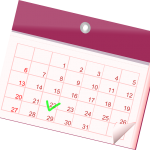 Merry New Year to all of you! I went AWOL for a good reason there – to be revealed in the next column as The Most Socially Awkward Thing I Did in 2020 and Ever.* In any case, here we are. Locked down. Again. The third time over. Well, it’s more like the second time, as the time before this didn’t really count. Or did it? Time is a bit hazy at the moment. I find my mind reverts back to our Southern Hemisphere, South African calendar in a Clockwork Orange-type blip from time to time. Is it the start of the school year? Is it the end? What’s happening? It feels like July, but it’s not. Will summer ever come back? If I start posting pictures of crossed out I I I Is send help!
Merry New Year to all of you! I went AWOL for a good reason there – to be revealed in the next column as The Most Socially Awkward Thing I Did in 2020 and Ever.* In any case, here we are. Locked down. Again. The third time over. Well, it’s more like the second time, as the time before this didn’t really count. Or did it? Time is a bit hazy at the moment. I find my mind reverts back to our Southern Hemisphere, South African calendar in a Clockwork Orange-type blip from time to time. Is it the start of the school year? Is it the end? What’s happening? It feels like July, but it’s not. Will summer ever come back? If I start posting pictures of crossed out I I I Is send help! Other coping slash distraction mechanisms include binge watching series. Schitt’s Creek has opened up a world of meme-age.***** We’re onto Brooklyn 99 now. It’s making me regret not going into the police service and becoming a detective (that is one of my lesser-known regrets – I think I would have made a very good detective. I also have a queue of schmaltzy 90s and 2000s romantic comedies to get through; Sweet Home Alabama ticked off that list. Mental chewing gum is where it is at.
Other coping slash distraction mechanisms include binge watching series. Schitt’s Creek has opened up a world of meme-age.***** We’re onto Brooklyn 99 now. It’s making me regret not going into the police service and becoming a detective (that is one of my lesser-known regrets – I think I would have made a very good detective. I also have a queue of schmaltzy 90s and 2000s romantic comedies to get through; Sweet Home Alabama ticked off that list. Mental chewing gum is where it is at. In any case, fuck Brexit. Really. I don’t say much about it publicly, but I am sad it actually happened. I’m sad for all that could have been and now never will be. I’m sad for people who believe they’re so much better than everybody else that they put walls up, slam doors shut, and retreat. Small people with small minds. Nationalism turned disease. There, I said it. Ugh. In protest, I check out my items on Amazon one by one,******* while I watch my romcoms, eating alcoholic milkshakes and dreaming of UBI and communal gardens.
In any case, fuck Brexit. Really. I don’t say much about it publicly, but I am sad it actually happened. I’m sad for all that could have been and now never will be. I’m sad for people who believe they’re so much better than everybody else that they put walls up, slam doors shut, and retreat. Small people with small minds. Nationalism turned disease. There, I said it. Ugh. In protest, I check out my items on Amazon one by one,******* while I watch my romcoms, eating alcoholic milkshakes and dreaming of UBI and communal gardens.

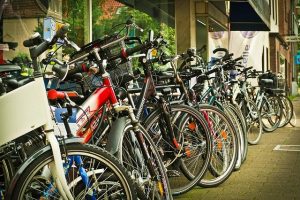


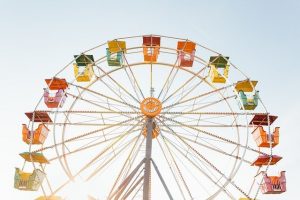 Reading back, I realise I might have missed out a small, but rather vital, piece of information for you. That is, when you’re setting your focus for the year or quarter or month, to pick out two to three things to focus on. So, if we look at our categories for the year – and we’ve scored them in light of what our level 10 life looks like – in order to start achieving balance, we’d likely pick up the two to three lowest scoring categories and assign them highest priority. On my Wheel of Life, my three lowest scoring categories are: Health, Personal Development, and Fun and Recreation. I decided to concentrate on these for 2020. When I set my goals, I make the goals set in these categories a priority. Other goals come second to these.
Reading back, I realise I might have missed out a small, but rather vital, piece of information for you. That is, when you’re setting your focus for the year or quarter or month, to pick out two to three things to focus on. So, if we look at our categories for the year – and we’ve scored them in light of what our level 10 life looks like – in order to start achieving balance, we’d likely pick up the two to three lowest scoring categories and assign them highest priority. On my Wheel of Life, my three lowest scoring categories are: Health, Personal Development, and Fun and Recreation. I decided to concentrate on these for 2020. When I set my goals, I make the goals set in these categories a priority. Other goals come second to these.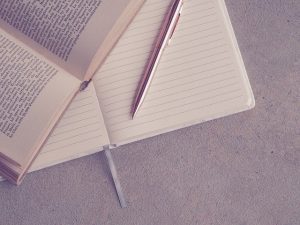 Take recreation or hobbies in my case. At the beginning of this year, 2020, the year of all that is Corona, I decided to brush up on my piano playing skills. Again. I thought I’d be able to sneak an hour a couple of times a week while the kids were at school to do this. And then we all laughed together. About halfway into lockdown, I realised that instead of carrying this over as a ‘priority’ task that I was never going to get to, I could shift focus and make sure that I spent at least half an hour to an hour, before I went to sleep, reading novels. This helps me to wind down and shift focus onto something that is not work or family related. I love reading candyfloss time-crime dramas or thrillers. Honestly, it’s as much me-time as piano was ever going to be. I’m not about to be sitting at the Heuston Station piano enthralling all who come and go with my talents, believe you me. It was purely for me to do something different. Reading has the same effect. It is okay to change that specific action of play piano for three hours a week to read for half an hour before bed every night.
Take recreation or hobbies in my case. At the beginning of this year, 2020, the year of all that is Corona, I decided to brush up on my piano playing skills. Again. I thought I’d be able to sneak an hour a couple of times a week while the kids were at school to do this. And then we all laughed together. About halfway into lockdown, I realised that instead of carrying this over as a ‘priority’ task that I was never going to get to, I could shift focus and make sure that I spent at least half an hour to an hour, before I went to sleep, reading novels. This helps me to wind down and shift focus onto something that is not work or family related. I love reading candyfloss time-crime dramas or thrillers. Honestly, it’s as much me-time as piano was ever going to be. I’m not about to be sitting at the Heuston Station piano enthralling all who come and go with my talents, believe you me. It was purely for me to do something different. Reading has the same effect. It is okay to change that specific action of play piano for three hours a week to read for half an hour before bed every night.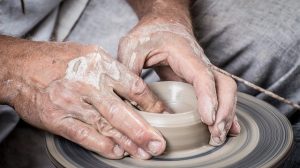

 “At the very end of each month, set up a new Monthly Log. Once that’s done, review the pages of the month gone by. Chances are, you didn’t get around to completing all your Tasks. That’s fine! What’s important is figuring out which incomplete Tasks are worth your limited time and energy moving forward. Strike out those that aren’t, and migrate the ones that are.”
“At the very end of each month, set up a new Monthly Log. Once that’s done, review the pages of the month gone by. Chances are, you didn’t get around to completing all your Tasks. That’s fine! What’s important is figuring out which incomplete Tasks are worth your limited time and energy moving forward. Strike out those that aren’t, and migrate the ones that are.”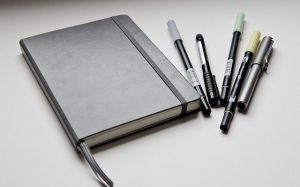
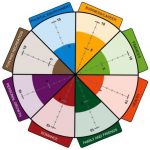
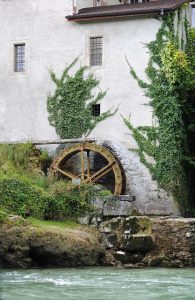
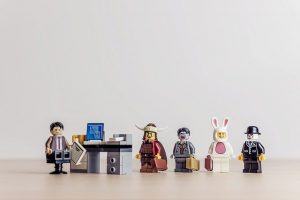
 Like any point that can be occupied, it has a defined area and edges, although faces might be more visual. These surround the centre of the plot and can be defined, or limited or, apparently, infinite. At least your eye could just keep travelling infinitely upward, but be under no illusion – the plot has limits. For a start, you can only really see things one way. When you look at something, you’re not looking at something else. Or is that a limitation in us and not the plot? I guess how this limitation changes us could only really be tested if we were like, maybe, ducks, with eyes on the side of our heads, or maybe the compound eye of a fly or nine eyes in or across our back. Anyway, within the plot, we are with our two eyes placed in parallel mounted on the front of our face giving us stereoscopic vision, and we have the element of time allowing for movement. Particularly rotation – the capacity to look different ways and then remember what we’ve seen before. But do we remember, or does what we see in the immediate downgrade our memory? Should I have asked this?
Like any point that can be occupied, it has a defined area and edges, although faces might be more visual. These surround the centre of the plot and can be defined, or limited or, apparently, infinite. At least your eye could just keep travelling infinitely upward, but be under no illusion – the plot has limits. For a start, you can only really see things one way. When you look at something, you’re not looking at something else. Or is that a limitation in us and not the plot? I guess how this limitation changes us could only really be tested if we were like, maybe, ducks, with eyes on the side of our heads, or maybe the compound eye of a fly or nine eyes in or across our back. Anyway, within the plot, we are with our two eyes placed in parallel mounted on the front of our face giving us stereoscopic vision, and we have the element of time allowing for movement. Particularly rotation – the capacity to look different ways and then remember what we’ve seen before. But do we remember, or does what we see in the immediate downgrade our memory? Should I have asked this?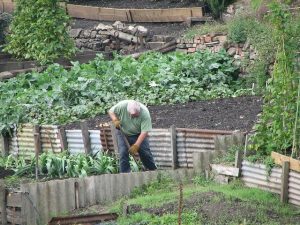 ’What does he do?’ Yeah he looks like an editor. Another part continues to weed and dig the border. I don’t ask for detail, just as I don’t ask her is she scared? Because I know it puts me in the wrong territory. I must not be too interested. We are allowed to compare our plots, but with self critical amusement and irony, and without actually saying what we think. He is jumpy, small head, suspicious, thinks I’m going to be too close to his beloved. She, girlish, frail, dry dark humoured, has the air of not-quite-dead crow, road kill, limping but bright-eyed and sharp, able to forage and possibly exaggerating her gait. Her mask is medical grade, not cheap disposable, no full PPE filter. She takes pride in it.
’What does he do?’ Yeah he looks like an editor. Another part continues to weed and dig the border. I don’t ask for detail, just as I don’t ask her is she scared? Because I know it puts me in the wrong territory. I must not be too interested. We are allowed to compare our plots, but with self critical amusement and irony, and without actually saying what we think. He is jumpy, small head, suspicious, thinks I’m going to be too close to his beloved. She, girlish, frail, dry dark humoured, has the air of not-quite-dead crow, road kill, limping but bright-eyed and sharp, able to forage and possibly exaggerating her gait. Her mask is medical grade, not cheap disposable, no full PPE filter. She takes pride in it.